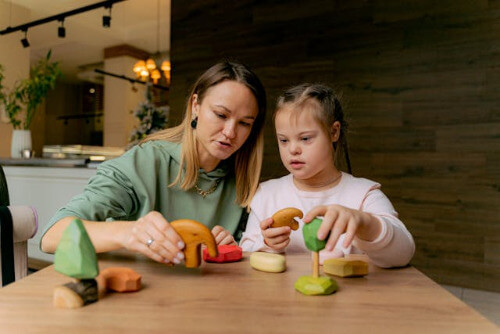Authoritative Parenting: The Balanced Approach Every Parent Should Know
Parenting in the Modern World
If you’ve ever wondered why some kids seem confident, respectful, and independent — while others struggle with boundaries or self-esteem — the answer often lies in parenting style. And among the four major types psychologists have identified, authoritative parenting consistently ranks as the most effective.

In this guide, you’ll discover:
- What authoritative parenting is (and isn’t)
- How it compares to other styles
- Practical ways to use it in your home
- Why research consistently links it to happier, healthier children
What Is Authoritative Parenting?
Coined by developmental psychologist Diana Baumrind in the 1960s, authoritative parenting blends high expectations with warmth and responsiveness. It’s often described as “firm but fair.”
Authoritative parents:
- Set clear, consistent rules
- Explain the why behind decisions
- Encourage independence
- Offer emotional support
- Listen to their child’s perspective
Think of it as guiding with both a compass and a hug — you provide direction but allow room for the child’s personality to grow.
Authoritative vs. Other Parenting Styles
To truly understand this approach, it helps to compare it to the other three main styles:
| Parenting Style | Level of Demandingness | Level of Responsiveness | Typical Outcome for Children |
|---|---|---|---|
| Authoritative | High | High | Confident, self-disciplined, socially skilled |
| Authoritarian | High | Low | Obedient but may lack confidence |
| Permissive | Low | High | Happy but may lack discipline |
| Neglectful (Uninvolved) | Low | Low | Struggles with attachment and self-control |
The Core Principles of Authoritative Parenting
1. Clear Expectations and Boundaries
Rules are set and explained, so children know exactly what’s expected.
2. Consistent Discipline
Consequences are logical, not arbitrary. If a toy is misused, it’s removed temporarily — not unrelated punishments.
3. Open Communication
Children are encouraged to express feelings and opinions without fear.
4. Emotional Warmth
Love and support are unconditional, even when discipline is needed.
5. Encouragement of Independence
Age-appropriate choices help children learn decision-making skills.
Why Authoritative Parenting Works (Backed by Research)
Studies over decades show that children raised with authoritative parenting tend to:
- Have higher academic performance
- Show better social skills
- Develop stronger self-esteem
- Exhibit lower rates of anxiety and depression

The magic lies in the balance: structure & support. Kids feel safe because they know the rules, but they also feel valued because their voice matters.
How to Practice Authoritative Parenting in Daily Life
1. Set Rules Together
Instead of dictating every household rule, involve your child in creating them. This builds buy-in and reduces resistance.
2. Explain the Why
When enforcing a bedtime, for example, explain:
"We go to bed at 8:30 so your body gets enough rest to feel good at school tomorrow."
3. Model the Behavior You Expect
If you want honesty, model it — even in small things like admitting when you’re late or wrong.
4. Offer Choices Within Limits
Letting a preschooler choose between two outfits builds independence without chaos.
5. Use Natural and Logical Consequences
If homework isn’t done, the natural consequence might be missing out on playtime until it’s complete.
Common Misconceptions
Myth 1: It’s Too Soft
Authoritative parenting is warm but not permissive. Rules are firm, and consequences are real.
Myth 2: Kids Run the Show
Children have a voice, but parents still guide the final decision-making.
Myth 3: It Only Works for Young Kids
Teens benefit hugely from this style — especially in open communication and trust.
Real-Life Example
Meet Sarah, a mom of two. Her 10-year-old, Max, wanted to play video games before homework. Instead of saying “No, because I said so,” she explained how homework affects his school success, listened to his point of view, and agreed he could play afterward if homework was done.
Result? Less resistance, more cooperation — and Max took responsibility for his time.
Potential Challenges
Even with its benefits, authoritative parenting isn’t without hurdles:
- Time and Patience Required: Explaining rules takes more effort than giving orders.
- Consistency Is Key: Inconsistency confuses children and weakens trust.
- Adapting for Different Personalities: Some kids need more structure, others more flexibility.
Tips for Staying Consistent

- Keep a short list of non-negotiable rules
- Use calm, clear language when disciplining
- Regularly check in emotionally with your child
- Practice self-care — a burnt-out parent struggles to be authoritative
Resources for Going Deeper
If you want to strengthen your skills:
- Books: Parenting with Love and Logic by Foster Cline & Jim Fay
- Courses: Online workshops from certified parenting coaches
- Tools: Printable charts for household rules and rewards
Would you like a free printable on “The 10 Daily Habits of Authoritative Parents”
Authoritative parenting is more than a style — it’s a philosophy of raising children who are capable, respectful, and emotionally healthy. By blending structure with empathy, you create a home where kids feel safe to grow and confident to explore.
If you’re ready to start, begin small: set one clear rule, explain why it matters, and listen to your child’s feedback. Over time, you’ll see the difference — in your child’s behavior, in your relationship, and in the calm that comes from parenting with both head and heart.






















